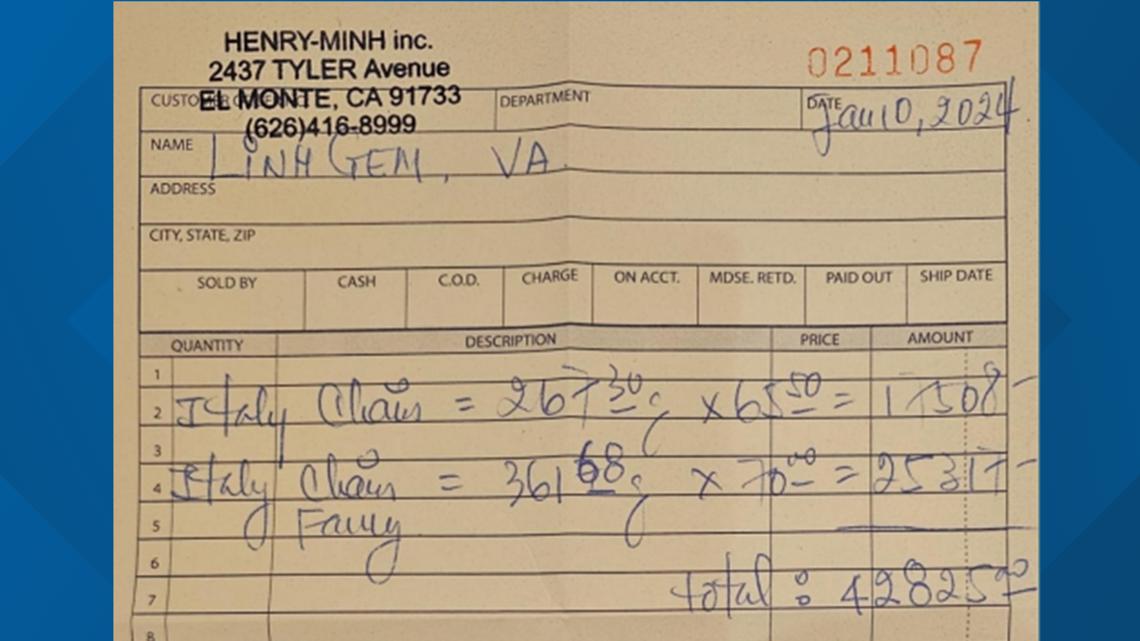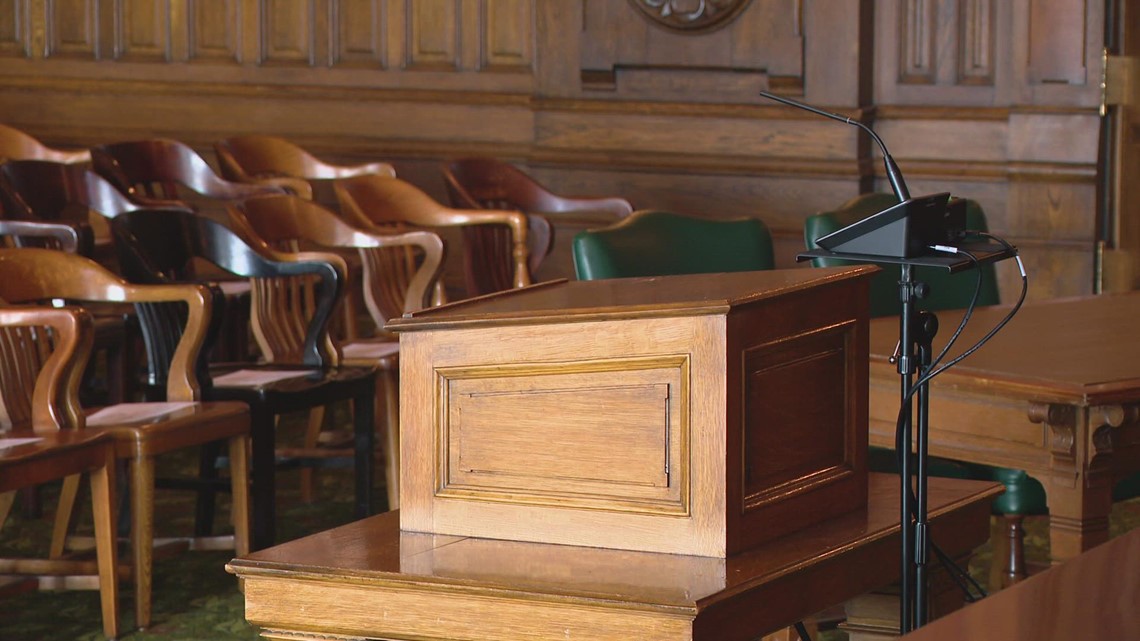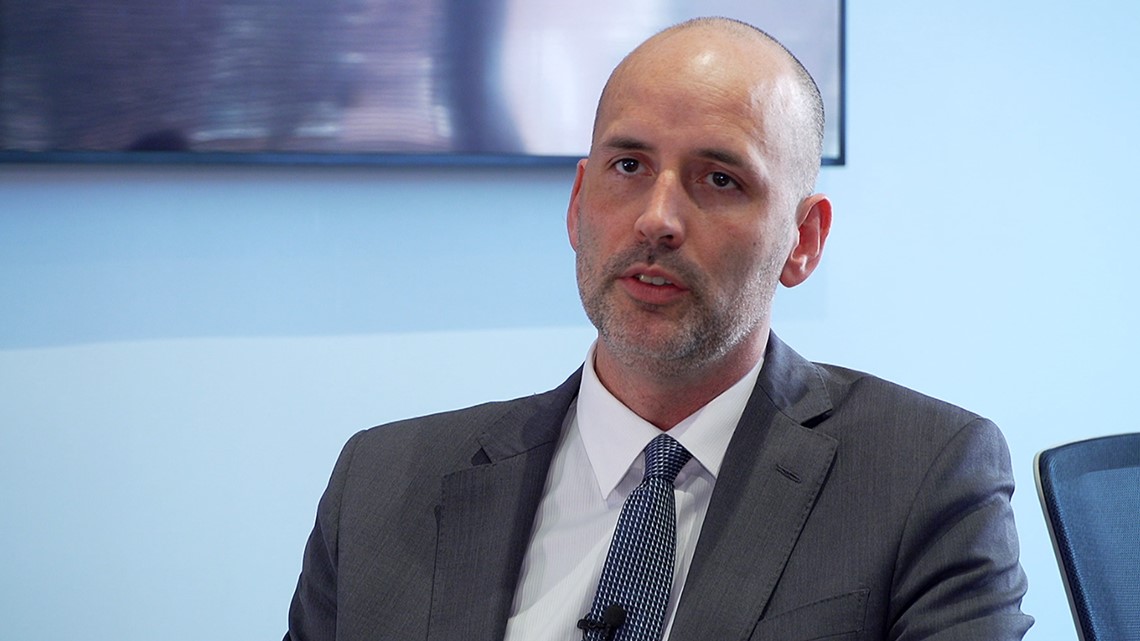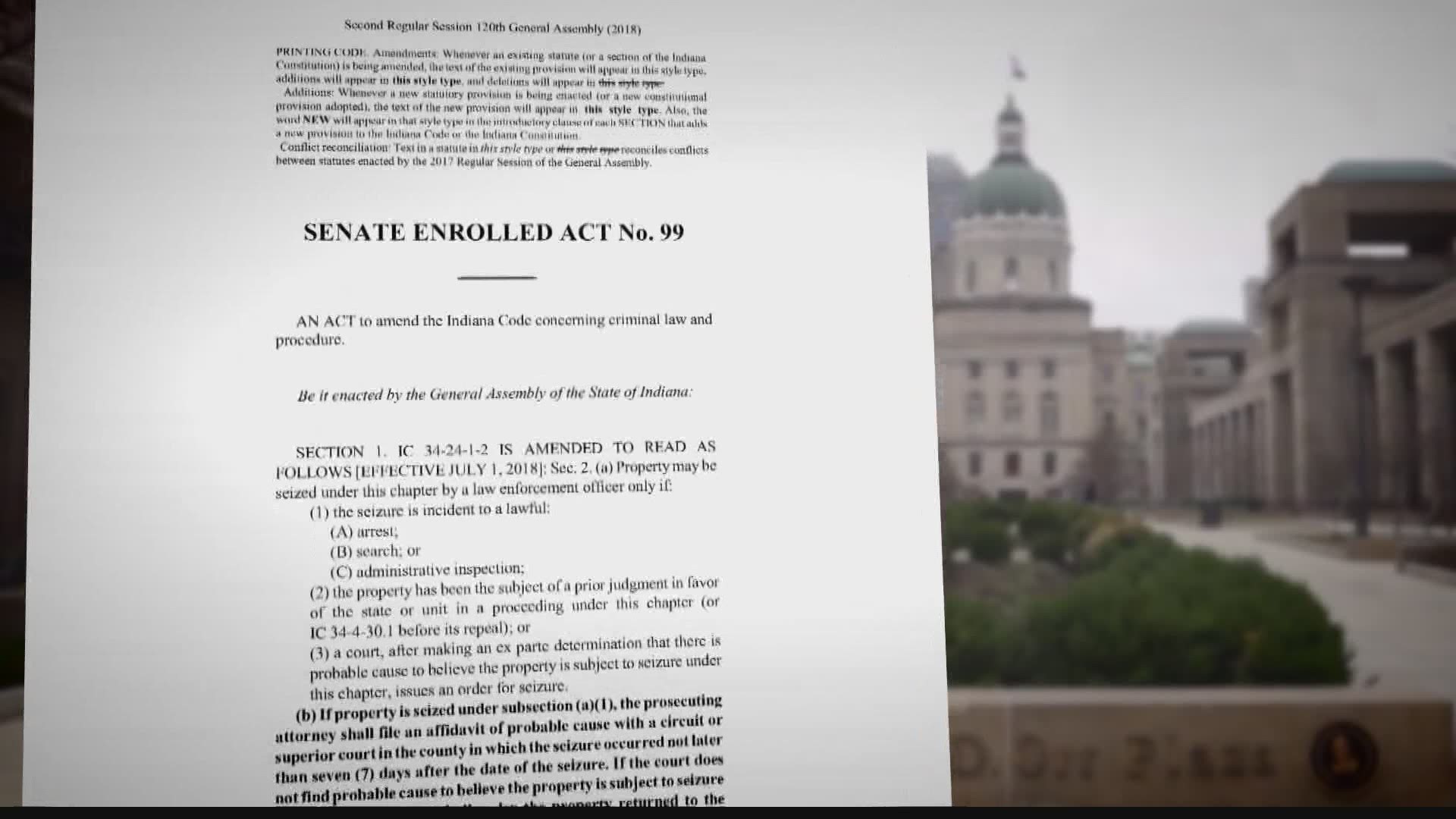INDIANAPOLIS — The Institute for Justice says police and prosecutors are trying to seize any cash that gets mailed through the FedEx Express World Hub by the Indianapolis International Airport.
"If a dog alerts and the officers find cash, the county prosecutor’s office begins civil-forfeiture proceedings in Indiana state court to keep the money," according to the Institute for Justice.
The institute says that adds up to hundreds of thousands of dollars a year.
The institute is now filing a class action suit, saying that the cash is being taken without due cause.
The first plaintiff is a jeweler named Henry Minh. He says more than $42,000 that was coming to him for jewelry was seized by police—and they say he has the receipts to prove it.


Minh says he shipped Italian gold to a man identified in the lawsuit as "Patrick H."
Patrick didn't pay his bill on time, so Minh told him to pay in cash.
But the cash never arrived because it was seized by police while the package was being processed at the FedEx Hub in Indianapolis.
The institute lawyers said the prosecutor's office has never been able to tie the money to a crime.
They said the reasons they were given for the box being pulled aside included:
- It was new with all the seams sealed with tape (FedEx recommends customers tape all seals)
- There is no signature required for the parcel (the label of the package allegedly said it needed a signature)
- The label was paid for by unknown means at a ship center (the label wasn't from a shipping center)


The money is being held through "civil asset forfeiture."
It's a legal way for police to take property without ever charging anyone with a crime.
The property just needs to be linked to a crime that violates Indiana law.
Even if no charged are filed, the property is taken. The local prosecutor fills out forfeiture paperwork, and the profits are split with the Department of Homeland Security.
"Asset forfeiture is designed to deprive criminals of the proceeds of their crimes, to break the financial backbone of organized criminal syndicates and drug cartels, and to recover property that may be used to compensate victims and deter crime."
But the system also has many critics. The Institute for Justice says civil asset forfeiture "turns cops into robbers."
In 2017, the U.S. Supreme Court says the system, which gives people very little way to contest forfeiture, "has led to egregious and well-chronicled abuses."
Last year, the Indiana Supreme Court agreed that there were too few protections for people whose property had been seized. They ruled that someone whose property was taken can demand a jury trial, in a case that was also brought by the Institute for Justice.
According to the Indiana General Assembly, more than $6.6 million was seized in 2023 fiscal year alone.


In the countersuit, the Institute for Justice wants the court to rule that the way cash is being seized from the FedEx Hub is illegal and unconstitutional.
They also want Minh to get his money back and have his attorney fees paid for by the state.
The State of Indiana and Marion County Prosecutor Ryan Mears are named in the suit.
A hearing on Sept. 16 will determine whether the lawsuit can move forward with class action status.

